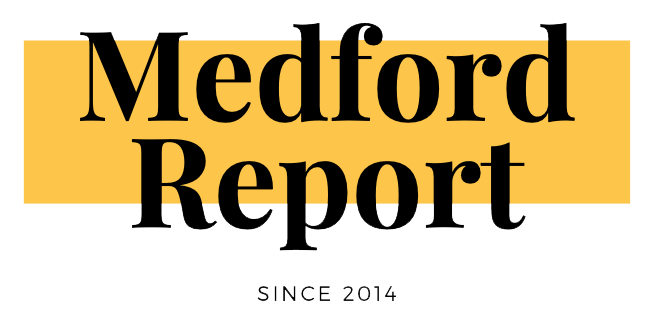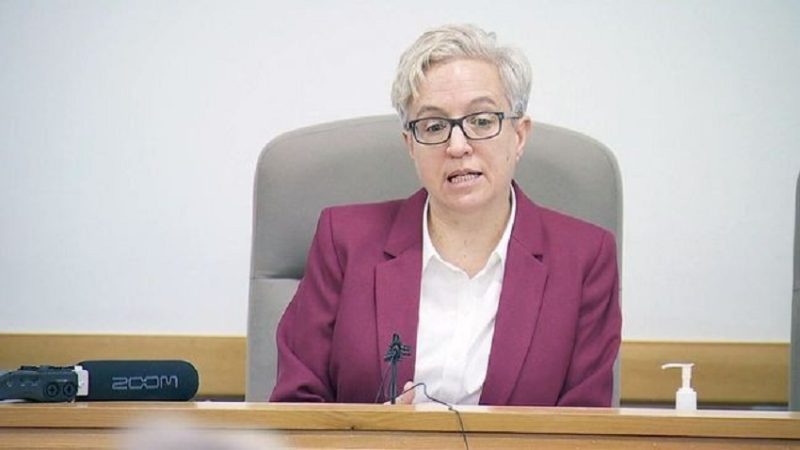Medford, OR – The 2025 Oregon legislative session kicks off Tuesday with a heavy focus on the state’s budget, as lawmakers prepare to address significant financial challenges, including a nearly $2 billion transportation deficit. In addition to transportation, Governor Tina Kotek has made large funding requests for housing and homelessness, which will also be a central theme in the upcoming session.
During a legislative press event on Thursday, leaders from both major political parties emphasized the importance of affordability for Oregonians as they begin to tackle these budget issues. House Speaker Julie Fahey, D-Eugene, stated that affordability is the top concern for constituents, highlighting areas such as housing, utilities, and healthcare as key areas for action.
“We are leading first and foremost with affordability and cost of living. That is something that is very top of mind for Oregonians right now,” Fahey said. “There are big-ticket items at the state level that we can and will make a difference on.”
House Republican Leader Christine Drazan, R-Canby, agreed that affordability must be a priority but warned against policies that would increase state spending and expand government control. She emphasized the need for fiscal responsibility and careful consideration of state expenditures.
“The concerns that Oregonians are facing right now around affordability are extraordinary,” Drazan said. “We will continue to apply pressure to ensure that these dollars are being wisely spent, and that we are not constantly ratcheting up costs on Oregonians.”
Both Fahey and Drazan emphasized their commitment to oversight of state agency spending to ensure it is yielding measurable results. However, tensions flared when the two leaders discussed Governor Kotek’s emergency order on homelessness, which she implemented early in her tenure.
Fahey defended the emergency order as a model for goal-driven spending, noting that it came with specific outcomes and objectives. “We met those goals that were set up two years ago, and I’m proud of the progress we have made,” she said, pointing to the success in addressing homelessness as evidence of effective use of state resources.
Drazan, however, criticized the results, pointing to a recent Point in Time count showing an increase in homelessness, despite billions in funding and nearly three years of a declared state of emergency. “Where’s the result? We’ve invested billions, and we have succeeded in housing a few thousand,” she said. “That’s not something to celebrate.”
The transportation budget also emerged as a major point of discussion. Governor Kotek emphasized that the $2 billion transportation deficit cannot be covered by the state’s general fund, warning that doing so would force cuts to other essential services, including education, mental health services, and housing.
“I can tell you that’s not feasible unless someone wants to take $2 billion out of the general fund for transportation,” Kotek said. “That is $2 billion out of education, mental health services, and housing.”
In contrast, Drazan and Senate Minority Leader Daniel Bonham, R-The Dalles, suggested that they would prefer to reduce some of Kotek’s budget requests for housing and homelessness in order to allocate more state funds to addressing the transportation deficit. They also expressed opposition to exploring new road taxes to fund transportation projects.
Despite these disagreements, Senate President Rob Wagner, D-Lake Oswego, expressed optimism about the potential for bipartisan cooperation. Wagner noted that he has made a concerted effort to build relationships with Republican lawmakers, traveling across the state to engage with them and foster goodwill.
“This is something I’ve spent a lot of time on, trying to really understand this role and how to build relationships,” Wagner said. “We’re focused on working across party lines to move Oregon forward.”
As the 2025 legislative session unfolds, the debate over budget priorities, fiscal responsibility, and effective spending will likely continue to shape the state’s policy agenda. With affordability top of mind for both lawmakers and constituents, Oregon’s leaders face a challenging but crucial task in addressing the state’s most pressing issues.

